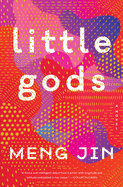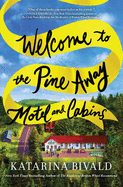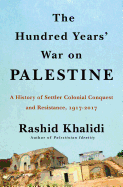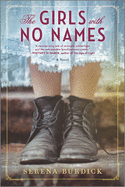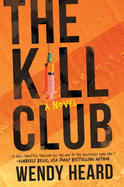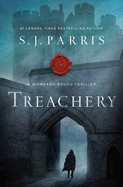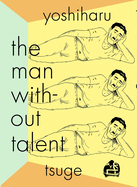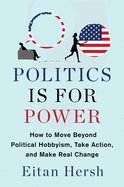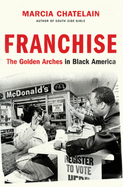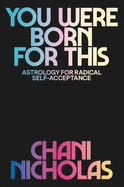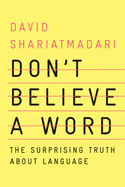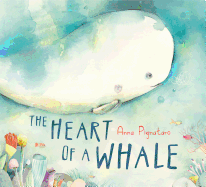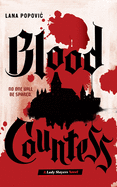Friday, January 31, 2020
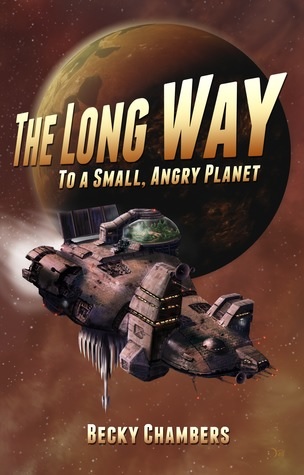 When I am browsing for a book to read, the first line determines if I will read any further (although once I bought a book based only on its title--The Long Way to a Small, Angry Planet--and was delighted with my recklessness). Lately I've found some books whose first lines intrigued me enough to keep going.
When I am browsing for a book to read, the first line determines if I will read any further (although once I bought a book based only on its title--The Long Way to a Small, Angry Planet--and was delighted with my recklessness). Lately I've found some books whose first lines intrigued me enough to keep going.
"In the month of May 1898, on his wedding night, Thomas Griffith Smolders was chased around his hotel room, not by his bride, as you might expect, but by a ball of fire--luminous and strangely cool." --The Iconoclast's Journal by Terry Griggs (Biblioasis, $14.95).
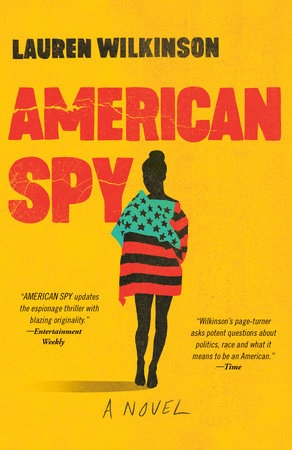 "I unlocked the safe beneath my desk, grabbed my old service automatic, and crept toward my bedroom doorway, stealthy until I was brought to grief by a Lego Duplo that stung the sole of my foot." --American Spy by Lauren Wilkinson (Random House, $27).
"I unlocked the safe beneath my desk, grabbed my old service automatic, and crept toward my bedroom doorway, stealthy until I was brought to grief by a Lego Duplo that stung the sole of my foot." --American Spy by Lauren Wilkinson (Random House, $27).
" 'Don't shoot guns into the hurricane.' Elsewhere this would go without saying, but Floridians need to be told." --Naked Came the Florida Man by Tim Dorsey (Morrow, $27.99).
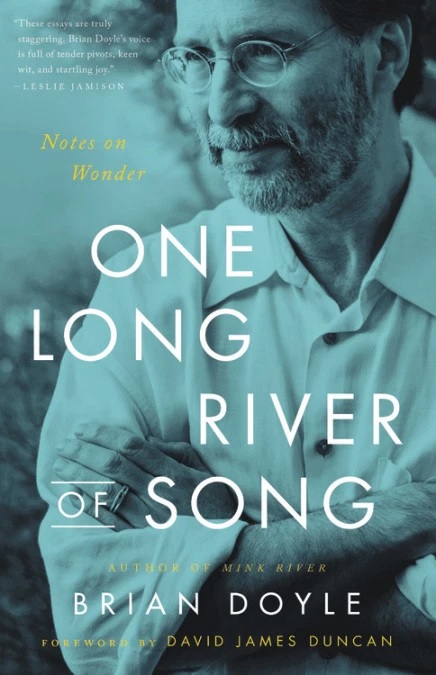 I'm cheating here with a collection of the late Brian Doyle's writings, One Long River of Song: Notes on Wonder (Little, Brown, $27), by choosing from an essay on finding a dead mole, but he's worth the finesse: "I should toss the body over the fence, into the thicket, as food for the many, such being the language of life, but I think of how we feel when we are tucked in tight in bed, inside the cocoon of the blankets, wrapped and rapt, and I wonder if moles love the grip of earth that way, love the press and dense of it, its inarguable weight, the blind swim through the dark, would love to finally dissolve in it; and I bury the body."
I'm cheating here with a collection of the late Brian Doyle's writings, One Long River of Song: Notes on Wonder (Little, Brown, $27), by choosing from an essay on finding a dead mole, but he's worth the finesse: "I should toss the body over the fence, into the thicket, as food for the many, such being the language of life, but I think of how we feel when we are tucked in tight in bed, inside the cocoon of the blankets, wrapped and rapt, and I wonder if moles love the grip of earth that way, love the press and dense of it, its inarguable weight, the blind swim through the dark, would love to finally dissolve in it; and I bury the body."
I'll give Doyle the last word. --Marilyn Dahl
Little Gods
by Meng Jin
Time sustains and ultimately devastates a brilliant physicist in Meng Jin's ambitious, stomach-twisting debut, Little Gods. Underestimated, if not outright ignored, by her peers in China, a young Su Lan notches the highest score in her high school class and moves to the city to shed her rural childhood and research a revolutionary theory of time. Her classmates, Yongzong and Zhang Bo, are each slowly enraptured by her, to the point of near torment. In Shanghai, her aging neighbor, Zhu Wen, is similarly captivated.
But readers will sympathize most, at least initially, with Liya, Su Lan's daughter. Now studying in the U.S., she books a plane to China, carrying her mother's ashes, as she attempts to understand what tore apart their once-inseparable bond. Liya pursues a father she's never met, but her own identity is thrown into question when she discovers she was born not in 1988 but in 1989, on June 4, the night of the Tiananmen Square massacre in Beijing. As Liya attempts to piece together her mother's story--and in the process unspools her own--Little Gods leaps among narrative threads, pulling off an impressive feat of character-shuffling.
Weaving intentionally (and effectively) through decades of China's past, mirroring Su Lan's frustrated and ultimately unfinished study of physics and time, Little Gods is both imaginative and deeply rooted in reality. Jin offers a glimpse into the life of a complicated scientist, one who wishes to capture the very essence of life but struggles to connect with the life around her. --Lauren Puckett, freelance writer and editor
Discover: In Meng Jin's intricate debut novel, a physicist dies while pursuing a theory of time and leaves behind a cast of complicated characters who cannot shake her outsize impact on their lives.
Welcome to the Pine Away Motel and Cabins
by Katarina Bivald
Setting aside for a moment the fact that Welcome to the Pine Away Motel and Cabins by Katarina Bivald (Readers of Broken Wheel Recommend) is narrated by a ghost, readers will find the novel perfectly captures the joys and trials of small-town living. Layer over that Bivald's choice of narrator--the spirit of Henny, a young woman recently killed in a freak car accident--and the book becomes more than the sum of its parts, a nuanced story of life and death, legacy and love.
"I mourn for the people we were and the people we were forced to become and everything we could be again, if only we had more time," laments Henny. And so she uses her extra time--spent in an ethereal and invisible state--to linger among her friends and family, pushing them each toward some kind of peace as best she can: her father, a questionably homophobic old man who slips into a curmudgeonly solitude following his daughter's death, and his nosy church-going neighbor. The one-time local high school football star and his unhappy wife. And most importantly, her friends: Michael, her high school love; MacKenzie, her best friend and coworker at the motel; and Camila, inheritor of the motel. Welcome to the Pine Away Motel and Cabins is somewhat slow to build, but as each of these characters comes to terms with both the individual and collective loss of Henny, the novel picks up momentum, culminating in a story full of both hope and heart. --Kerry McHugh, blogger at Entomology of a Bookworm
Discover: A small town comes to terms with what it means to lose someone in this heartwarming novel narrated by the ghost of a young woman.
The Girls with No Names
by Serena Burdick
Effie Tildon was born on the first day of the year 1900 with a heart defect; she wasn't expected to live through the year. Instead, she has made it to the age of 13 following her bold, older sister, Luella, who claimed her for her own like a doll when she was a baby. Effie expects that she will go to college one day and become a professional writer, and that Luella will follow in their mother's footsteps as a great ballerina. But then the sisters discover a secret their father is keeping, prompting Luella to become more rebellious. When her sister vanishes, Effie suspects that their father has had her committed to the House of Mercy, a home for wayward girls. She hatches a plan to have herself committed, too, in order to force her parents to retrieve them both.
The Girls with No Names, the sophomore work by Serena Burdick (Girl in the Afternoon), paints a vivid picture of life inside the workhouses to which women and girls could be sentenced in the 19th and early 20th century for anything considered immoral. Effie's more upper-class voice is balanced with Mable's, another resident whose tragic history contains secrets of a very different kind. Effie's mother also narrates some chapters, adding the perspective of an older generation facing the changing roles available to women in the new century. This coming-of-age tale will appeal to fans of Orphan Train by Christina Baker Kline and The Magdalen Girls by V.S. Alexander. --Kristen Allen-Vogel, information services librarian at Dayton Metro Library
Discover: Sisterly love drives a teenager to risk the asylum in this layered historical novel.
Mystery & Thriller
The Kill Club
by Wendy Heard
When good people with few resources are put in impossible situations that threaten their lives, what do they do? In Wendy Heard's riveting thriller, they join The Kill Club, in which members agree to murder the troublemakers in one another's lives, leaving no links to the people who need them dead.
Jazz does not want to join the club, even though she wants to extricate her diabetic younger brother, Joaquin, from his cruel adoptive mom, Carol. Jazz and Joaquin were separated after Jazz aged out of the foster system, and now she has no rights to him.
But the situation becomes urgent when Carol stops giving Joaquin his insulin and removes him from school, believing religion can heal his condition and teach him all he needs to know. Jazz finally accepts the kill club's deal for her to kill a stranger, so that a different stranger would murder Carol before the woman sends Joaquin into diabetic shock.
The author's note says, "This book is a love letter to the working-class Los Angeles that doesn't always make it into books and movies," and that love jumps off the page. Jazz lives in a tiny, old apartment and works at Trader Joe's, where she must handle blonde female customers with "the 'I'd like to speak to the manager' haircut." On the streets she encounters many homeless people; Heard ensures they are seen, not invisible. The author also says the abuse suffered by the members of the titular club are all true stories. This is not La La Land; its people are scrappy and vibrant and heroes of their own lives. --Elyse Dinh-McCrillis, blogger at Pop Culture Nerd
Discover: In this propulsive thriller, a young woman joins a murder club, agreeing to kill a stranger to save her brother's life.
Treachery
by S.J. Parris
Fans of Umberto Eco or C.J. Sansom will love Treachery, the fourth entry in the Giordano Bruno series by S.J. Parris. Bruno, an excommunicated Italian monk, makes for a thoughtful and perspicacious witness to the events and attitudes of the Elizabethan era, commenting on the English aristocracy from the outside.
Sir Francis Drake is about to depart on another expedition against the Spanish, but then a man is found hanged in his cabin. Robert Dunne's death is problematic on several levels: if it's a suicide, his widow will have to forfeit their estates, but if it's murder, then Sir Francis must deal with the murderer before he sets out, in order to make sure there is no treachery afoot.
Hoping to finagle a position within Sir Francis's crew, Sir Philip Sidney, a favorite of Queen Elizabeth, travels to Plymouth with Bruno to investigate the situation. Bruno becomes convinced that Dunne's death was murder, especially when he hears a rumor connecting a mysterious manuscript, the death of a Spanish priest and the execution of a friend of Dunne. The manuscript, which is now in the hands of Sir Francis, seems to be desired by several nefarious people. Moreover, when Lady Drake and her cousin Lady Arden become involved in the discussion surrounding the manuscript's authenticity, the situation increasingly becomes both fraught and interesting for Bruno and Sidney.
Meticulously researched and well-written, Treachery is a fascinating historical mystery, sure to appeal to both historical fiction and mystery readers. --Jessica Howard, bookseller at Bookmans, Tucson, Ariz.
Discover: In this engrossing historical thriller, an excommunicated monk helps Sir Francis Drake uncover a murderous plot in Plymouth.
Graphic Books
The Man Without Talent
by Yoshiharu Tsuge, transl. by Ryan Holmberg
Originally published as a magazine serial from 1985 to 1986, Yoshiharu Tsuge's The Man Without Talent makes its English-language debut, translated by comics historian and professor Ryan Holmberg.
Tsuge's protagonist, Sukezō Sukegawa, has "been reduced to selling stones" in a makeshift tent along the Tama River after several unsuccessful career ventures, including "cartooning, selling used cameras, junk and antiques." Despite the wrath of his agitated wife and pathos of his neglected young son, Sukezō lingers on in an aimless existence: he recalls his past hopes and failures, visits other doomed businesses and their ineffective proprietors, and occasionally, half-heartedly, ill-fatedly attempts to improve his impoverished conditions. Drawn in stark black-and-white panels, Tsuge's frank narrative portrays an artist-in-decline, an anti-Bildungsroman that offers effective storytelling, enduring characters, poignant reflection and, most notably, gratifying art. Audiences who shut the book after the final panels would certainly leave Sukezō in his solipsistic reverie with satisfying closure.
But, yes, there's more. Presented in its original Japanese back-to-front reading format, the manga's final pages run into translator Holmberg's essay, which, by the standards of Western publishing's front-to-back order, could act as the book's introduction. Whether read before or after Tsuge's manga, Holmberg's "Where Is Yoshiharu Tsuge?" is an illuminating enhancement--biographically, historically, literally. Augmented with black-and-white photos of Tsuge and his family, as well as selected book covers and panels from Tsuge's other publications, Holmberg's piece firmly places Tsuge and The Man Without Talent into the modern graphic canon "as one of the premier examples of the 'I-novel' (shishōsetsu) [autobiographical fiction] in comics form." --Terry Hong, Smithsonian BookDragon
Discover: Yoshiharu Tsuge makes his English-language debut with his autobiographical stand-in, The Man Without Talent, whose frustrated, aimless wanderings prove more resonating than ever.
History
The Hundred Years' War on Palestine: A History of Settler Colonialism and Resistance, 1917-2017
by Rashid Khalidi
In 1899, the mayor of Jerusalem, Yusuf Diya al-Khalidi, wrote a letter to Theodor Herzl imploring the father of modern Zionism: "in the name of God, let Palestine be left alone." Al-Khalidi, unlike many of his contemporaries, understood that the foundation of a Jewish state in Palestine meant expropriation and domination, perhaps exile or worse, for the indigenous population. He warned that Palestinians would never accept this colonialist project. More than a century later, al-Khalidi's prescience continues to be borne out.
Palestinian American historian and director of the Middle East Institute of Columbia's School of International and Public Affairs Rashid Khalidi (Palestinian Identity, Brokers of Deceit and The Iron Cage) is Yusuf Diya al-Khalidi's great-great-nephew. His family was in the upper class of Palestinian society prior to Zionist colonization. The Khalidi family's history since then mirrors that of the Palestinian people--forcible displacement, imprisonment and international activism advocating for a Palestinian state.
In The Hundred Years' War on Palestine, Khalidi intertwines his family's fortunes with what he calls six declarations of war against the Palestinians: the Balfour Declaration in 1917, the 1948 expulsion of half the Palestinian population (the Nakba in Arabic, meaning the catastrophe), the Six-Day War in 1967, the 1982 Israeli invasion of Lebanon, the First Intifada (1987-1993) and the Second Intifada (2000-05), with an analysis of recent events in Gaza. Khalidi is careful about assigning blame to ineffectual Palestinian leadership, and emphasizes the enormous role of first Britain, then the United States in supporting Israel politically, financially and above all militarily. The Hundred Years' War on Palestine presents a vital perspective on one of the planet's most intractable geopolitical and humanitarian crises. --Tobias Mutter, freelance reviewer
Discover: A Palestinian American scholar examines the Israeli-Palestinian conflict through the lenses of his family history and colonialism.
Political Science
Politics Is for Power
by Eitan Hersh
According to political scientist Eitan Hersh, many Americans who consider themselves politically engaged--keeping up with the news, watching satirical commentary about it or posting about it on social media--are involved in political hobbyism, rather than real, measurable work to create social change. He wondered if there could be a way to convert that hobbyism into meaningful civic engagement. (Hint: It can be done, but it's a tough pivot.) His second book, Politics Is for Power, examines the checkered history of political engagement in the U.S., tells the stories of several grassroots activists and asks how citizens can become involved in local politics to some effect.
Hersh (Hacking the Electorate) admits that most political "engagement" doesn't do much more than create a lot of noise online. He delves into American political communities, past and present, from the ward machines that once mobilized thousands of votes in large cities to pop-up "resistance" groups created following Trump's election. He explores the motivations for people to join such groups, and interviews citizens of various ages, races and genders who have quietly built robust local party committees and other groups in their communities. The conclusions are not glamorous, but neither are they surprising: real political engagement takes research, hard work, a willingness to commit time and effort, and (perhaps surprisingly) deep listening. Readers may not come away with a handy blueprint for civic engagement (there isn't one), but they will have a much better idea of what it takes to gain and wield political power. --Katie Noah Gibson, blogger at Cakes, Tea and Dreams
Discover: Eitan Hersh's thought-provoking second book explores American "political hobbyism" and suggests how citizens can pursue true civic engagement.
Social Science
Franchise: The Golden Arches in Black America
by Marcia Chatelain
This incisive study from historian and African American studies professor Marcia Chatelain (South Side Girls) takes shrewd advantage of the dual meaning of its one-word title. As she surveys the fascinating history of McDonald's and other fast-food restaurants' booming expansion into black neighborhoods in the 1960s and '70s, Chatelain illuminates the connection between hamburger franchises and the greater cultural work of enfranchisement.
Key chapters center on McDonald's recruitment of black franchise owners following Martin Luther King's assassination, to serve as the face of the company in black neighborhoods--and to take advantage of government programs encouraging black enterprise. Those efforts play out against tense boycotts in Cleveland and Portland, where community leaders press for a role in determining local ownership and for greater McDonald's civic engagement. Tellingly, when the earliest black McDonald's franchisees organized the National Black McDonald's Operators Association, in 1972, franchisee Herman Petty had to reassure the company that this was not "a militant organization."
Chatelain teases out the tensions that have shaped America's streets and diets: between corporate power and community needs; between individual opportunity and the collective damage fast food has done to customers' health; between restaurants that serve as de facto community centers and the fact that they send most of their profits out of town. Chatelain bookends Franchise with arresting accounts of McDonald's restaurants as safe havens during unrest in Ferguson, Mo., and the Los Angeles uprising of 1992; especially revealing is her nuanced exploration of McDonald's advertising targeting black Americans. --Alan Scherstuhl, freelance writer and editor
Discover: Here's the true story of how McDonald's thrived in black America in the name of civil rights.
Body, Mind & Spirit
You Were Born for This: Astrology for Radical Self-Acceptance
by Chani Nicholas
When asked, "What's your sign?" most people respond with one of the 12 astrological zodiac signs. But that's far from all that the night sky can tell us. "You're not just a Virgo or a Gemini or a Libra," says astrologer Chani Nicholas. "You are a moment in time, with every sign, planet, and point playing a part in who you are, how you move through the world and what you came here to do."
In You Were Born for This, Nicholas guides readers through the process of generating and interpreting their birth charts. With the date, location and time of birth, one begins with the three primary keys to a chart: the sun (commonly known as your sign), directing life's purpose; the moon, representing physical and emotional needs; and the ascendant, which is what motivates you, along with its ruling planet, representing the direction your life takes. From there, readers can go to relevant sections of the book to discover all that their chart has to say about them. Fill-in-the-blank sections can be used to record the position of all the planets on one's chart, and affirmations and reflection questions provide opportunities for contemplation.
While astrologers and horoscopes are ubiquitous in pop culture, Nicholas has an inclusive, social justice-oriented approach that sets her apart from the crowd. She has used astrology to unpack childhood trauma, overcome self-doubt and embrace the direction of her life after resisting it for many years. And with more than a million monthly readers to Nicholas's You Were Born for This website, readers will be in good company with her as a trusted guide. --Frank Brasile, librarian
Discover: This practical and empowering guide to astrology helps readers understand life's purpose, overcome obstacles and gain wisdom.
Reference & Writing
Don't Believe a Word: The Surprising Truth About Language
by David Shariatmadari
David Shariatmadari, an editor at the Guardian, debunks nine astonishingly frequent linguistic myths in Don't Believe a Word: The Surprising Truth about Language. Each chapter focuses on a frequently heard misstatement about language. Some of these, such as "Language is going to the dogs," "I control what comes out of my mouth" and "You can't translate this word" are so common that people may not even realize that they are in fact myths, until Shariatmadari shows their flaws.
A firm anti-Chomskyist, who believes that language is not an instinct, Shariatmadari argues that language is "the fruit of both the biological evolution of social thinking and the long cultural evolution of human societies." He provides countless examples of how certain thinking about language has been skewed: by calling African American Vernacular English simply "bad" or "incorrect" English, instead of viewing it as a separate dialect; by mindlessly sharing a meme that says that Albanians have 27 words for eyebrows, without stopping to think about the racial and linguistic implications of that statement; by idealizing a language one might identify with culturally, such as Sanskrit or Korean, at the expense of other languages.
Proving that no language is better than any other language, that animals have more language skills than previously thought and that every generation since the 14th century has bemoaned the "corruption" of English by the next generation, Shariatmadari provides lighthearted examples from a variety of languages and cultures that any armchair linguist will enjoy. Approachable, yet interesting and thought-provoking, Don't Believe a Word is sure to appeal to language lovers and grammar nerds alike. --Jessica Howard, bookseller at Bookmans, Tucson, Ariz.
Discover: This entertaining look at common language myths will appeal to armchair linguists everywhere.
Children's & Young Adult
The Heart of a Whale
by Anna Pignataro
"Whale's song was so beautiful it could reach the farthest of faraways./ It sang of happiness and hope, magic and wonder, always and everywhere." Right away the reader knows that The Heart of a Whale is a no-snark zone--something that's no longer a given in kid lit. The book is perhaps not, however, a no-shark zone: as the reader will note, various sea critters (an octopus, baby seahorses) are lulled by the whale's daily song.
But the whale doesn't want to sing a solo: "Even with the roaring waves above him, even with the pounding drumbeat of his heart, even with his song... Whale thought how quiet the sea could be at times.../ and how there was no song big enough to fill his empty heart." He then releases a sigh, which carries through the water until it reaches another whale, who comes and finds him: "Together they sang of happiness and hope, magic and wonder.../ always and everywhere."
The milieu may be watery, but The Heart of a Whale is sweet without being sappy. That's because Anna Pignataro, an Australian author/illustrator who has created more than 60 books for kids, injects her blue-washed art, which has the color-blended look of watercolors, with a terrific level of detail. (Her ocean creatures could not easily be marketed as plush toys: they look too realistic.) The Heart of a Whale also avoids being maudlin because, while Pignataro is plumbing the deep blue sea, she is meanwhile investigating dark emotional terrain. Her message that we should all be keeping an ear out for cries of help is executed with perfect pitch. --Nell Beram, freelance writer and YA author
Discover: In this incantatory picture book, a whale who sings alone finds himself longing to be part of a duet.
Blood Countess
by Lana Popović
What begins as a fairy-tale opportunity to escape a mundane world quickly turns to violence and terror in Lana Popović's vivid and seductive YA novel set in 16th-century Hungary.
When 16-year-old healer Anna Darvulia becomes the Countess Elizabeth Báthory's chambermaid, she can't believe her good fortune: here is an opportunity to support her poor family, escape her father's brutality, and avoid an unwanted betrothal. Ignoring rumors of the Countess's violent tendencies, Anna forges ahead in her new position and finds her lady amiable, with a "curious, attentive nature; a tart, ready wit; and an insatiable mind." Friendship quickly turns to forbidden romance as Anna falls into the "delicious, honeyed madness" of first love. Passion, though, cannot shield Anna from the ever-increasing brutality Elizabeth bestows upon her female servants. Calculating and emotionally manipulative, Elizabeth draws her new conquest close to conceal the violent truth, but the horror of Anna's situation becomes too much to deny. Fearing for her family's safety--"I am terrified of her, of who she truly is"--Anna becomes an unwilling accomplice to Elizabeth's bloody acts and "rampant darkness."
Popović's (Wicked Like a Wildfire) YA historical thriller Blood Countess is a fictionalized account of the real Countess Elizabeth Báthory, accused of the serial murder of hundreds of young women. The author explores Elizabeth's passions, developing her into a full-bodied character and making the true depths of her bloodlust worse for the humanizing contrast. Anna's own journey, beginning in determination and love, spirals into grief, guilt and revulsion as she becomes ever more complicit in Elizabeth's violence. Self-sacrificing healer Anna and narcissistic murderess Elizabeth are effective foils, and Popović skillfully weaves them together in a suspenseful, heady romance that turns bloodier by the page. --Jennifer Oleinik, freelance writer and editor
Discover: Chambermaid Anna is entranced by her beautiful mistress, despite rumors of her violent ways, in this YA historical novel based on a real-life 16th-century murderess.


